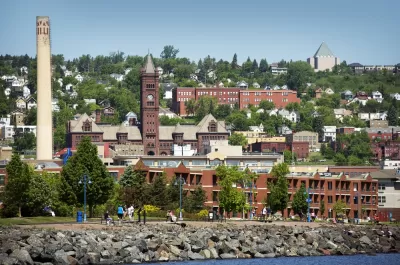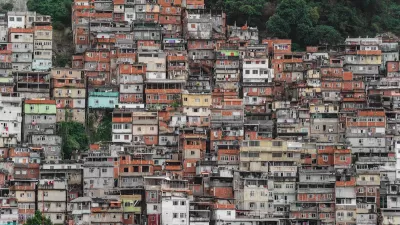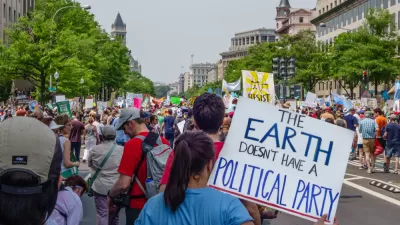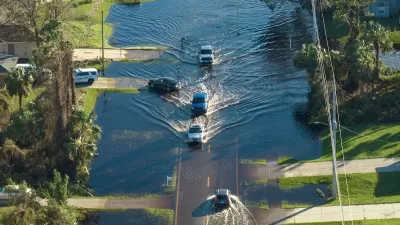While the data still shows many Americans moving toward climate risk, an increasing number have noted the obvious effects of climate change and decided to move toward fresh water and milder climates.

Duluth, Minnesota, with its abundance of fresh water and room to grow, has been identified as a potential climate migration hotspot—and many new arrivals are already crediting climate change for their move into the city at the edge of Lake Superior.
An article by Dan Kraker reviews some of the marketing and academic behind the idea of "Climate-proof Duluth," a phrase coined by climate adaptation expert Jesse Keenan. The idea and the location behind the phrase have already attracted media attention from The New York Times and CNN.
Kraker speaks with two recent climate migrants from California—who moved from Golden State's wine country to escape wildfires and floods. According to Keenan, they fall into one of two categories of climate migrants—those with the resources to move after evaluating where they are living for climate risks. The other group is made up by people who have been displaced by climate-related disasters and lack the resources to relocate or rebuild.
"There isn't much data to show how many people are actually moving because of climate change. Only anecdotal stories. Duluth hasn’t grown much in the past decade, only adding around 400 residents since the last census," explains Kraker.
"But in a survey of 2,000 U.S. residents last year, the online real estate company Redfin found that about half of Americans who planned to move factored extreme weather and natural disasters into their decisions to relocate."
Kraker quotes Daryl Fairweather, chief economist at Redfin, in mentioning a very large caveat to that data about the intentions of Americans to move away from climate risk—most Americans are still, in fact, moving toward climate risk, as documented in research also published by Redfin in August 2021.
Still, experts like Keenan says cities like Duluth should expect the trend of climate migrants to accelerate, especially while housing prices in expensive coastal regions provide additional reasons to relocate.
FULL STORY: Climate-proof Duluth? Why the city is attracting 'climate migrants'

Alabama: Trump Terminates Settlements for Black Communities Harmed By Raw Sewage
Trump deemed the landmark civil rights agreement “illegal DEI and environmental justice policy.”

Planetizen Federal Action Tracker
A weekly monitor of how Trump’s orders and actions are impacting planners and planning in America.

Why Should We Subsidize Public Transportation?
Many public transit agencies face financial stress due to rising costs, declining fare revenue, and declining subsidies. Transit advocates must provide a strong business case for increasing public transit funding.

Understanding Road Diets
An explainer from Momentum highlights the advantages of reducing vehicle lanes in favor of more bike, transit, and pedestrian infrastructure.

New California Law Regulates Warehouse Pollution
A new law tightens building and emissions regulations for large distribution warehouses to mitigate air pollution and traffic in surrounding communities.

Phoenix Announces Opening Date for Light Rail Extension
The South Central extension will connect South Phoenix to downtown and other major hubs starting on June 7.
Urban Design for Planners 1: Software Tools
This six-course series explores essential urban design concepts using open source software and equips planners with the tools they need to participate fully in the urban design process.
Planning for Universal Design
Learn the tools for implementing Universal Design in planning regulations.
Caltrans
Smith Gee Studio
Institute for Housing and Urban Development Studies (IHS)
City of Grandview
Harvard GSD Executive Education
Toledo-Lucas County Plan Commissions
Salt Lake City
NYU Wagner Graduate School of Public Service





























